Bigger better offer: Two magic ingredients that can change your ingrained habits

I love trains. When I was young, I frequently traveled by train to new cities with a group of good friends. To me, traveling by train means good times, laughter, new places, new adventures, and youth. A particular part of our brain called the orbitofrontal cortex (OFC) assigns reward value to our experiences. It brings together all our associations with a specific subject, integrates them, and assigns a value to that subject. To my OFC, the reward value of traveling by train is very high. Given a choice, I would always pick a train over a bus, car, or plane. However, if, at some point, I start traveling by ferry, for example, and have a fantastic experience doing so, my OFC will update my reward values and put ferry travel on top.
To change any habit, including addiction and anxiety habits, we need to get our OFC onboard. Judson Brewster, MD, Ph.D. in his book Unwinding Anxiety: New Science Shows How to Break the Cycles of Worry and Fear to Heal Your Mind, writes: “To change a behavior, you can’t just focus on the behavior itself. Instead, you have to address the felt experience of the rewards of that behavior. […] By paying attention to the results of behavior in the present moment, you can jolt your brain out of habit autopilot and see and feel exactly how rewarding (or unrewarding) the habit is for you right now. This new information resets the reward value on the old habit and moves better behaviors up in the hierarchy of reward value, and, eventually, into automatic mode.“ (1) For example, maybe you got into a habit of checking the news first thing in the morning and now find that doing so makes you feel stressed and anxious. To change that habit, you would need to
- Pay attention to the sensations within your body after reading the news. Do you feel heaviness in your head? Do you have a sinking feeling in the pit of your stomach? Do you feel your chest tightening and breathing becoming shallow? Is that pleasant or unpleasant to you? We must register every aspect of the experience to highlight to our OFC precisely what we get after engaging in this particular behavior.
- Try a different behavior, for example, listening to an inspirational podcast or audiobook while making your breakfast.
- Pay close attention to how that new behavior feels within your body. What do you feel in your head, stomach, chest, and so on? Is that more pleasant? You can try other behaviors, as well, like going for a walk or doing a short breathing practice with the same extensive check-in at the end – how does this feel deep within your body?
- Pick a behavior that feels the best and engage in it regularly for a while, every time highlighting to your brain how it makes you feel. Over time, this behavior will become a bigger better offer (BBO) to your brain.
Judd Brewster recommends finding BBO (or a substitute behavior) that, “because it is bigger and better, becomes a preferred behavior to your old habit. Due to its greater reward value, that BBO helps you step out of your old habit loop time after time at the beginning, and then once it gets grooved, turns into a new go-to for your brain (that is to say, a new habit).” (1)
This works in ways big and small, from our snap reactions during a heated argument to deeply ingrained patterns of actions and behavior. But it is only possible if we can get into a habit of immediately dropping into the body after engaging in problematic behaviors and assessing their impact on our inner state. This is an invaluable skill to cultivate, and you can practice it at any time. Got caught binge-watching the latest Netflix series? Close your eyes for a moment, drop into your body and assess how spending all this time in front of the screen feels. Can’t stop shopping, arguing, scrolling, procrastinating, worrying, eating, drinking, smoking, etc.? Close your eyes, drop into your body, and watch very closely how the body responds to your behavior. Is it truly rewarding, or is there a bigger better offer waiting to be discovered?
It is not easy to simply switch our behaviors, of course. We often rely on willpower, but willpower is unreliable in the habit-changing process. Willpower resides in our brain’s prefrontal complex (PFC), which, unfortunately, goes offline when we fall prey to our deep-rooted unconscious habits. But there is another innate quality we can successfully recruit to change our ingrained habits. That quality is curiosity.
The psychologists Jordan Litman and Paul Silva describe two main flavors of curiosity: I-curiosity, which stands for Interest, and D-curiosity, which stands for Deprivation. Deprivation curiosity makes you feel tense and restless; it’s an itch you need to scratch, a nagging sensation of missing out on something; the same curiosity killed the proverbial cat. On the other hand, interest curiosity represents the wide-eyed wonder of discovery; it is piqued when we are engaged and interested in learning more about something. Interest curiosity makes us feel spacious and connected. Interest curiosity is a renewable resource; it doesn’t run out. And it is rewarding within itself – it feels good to be curious and interested. It also feels good to learn new things about the world and oneself. Albert Einstein wrote: “Curiosity has its own reason for existing. One cannot help but be in awe when one contemplates the mysteries of eternity, of life, of the marvelous structure of reality. It is enough if one tries to comprehend only a little of this mystery every day.”
We can cultivate our I-curiosity and bring a sense of wonder to the exploration of our habits and behaviors. For example, we can say, “I wonder what it feels like in my body when I procrastinate instead of writing down my notes from my private yoga session. Let’s check.” Then close your eyes, drop your attention within and notice your sensations. If it doesn’t feel so good, you can ask: What would make me feel better? I wonder, how will I feel if I jot down some quick notes like I planned? “ Write the notes, recheck your inner response. How do you feel now?
When we get caught in any unrewarding behavior, often all it takes is to drop our attention into the body and check in for a moment. Our visceral response speaks for itself. The more often you remind your brain how unpleasant the old behavior feels and how pleasant the new one is, the more naturally your brain will begin to prefer the new behavior. That is why curiosity (“I wonder what it feels like?”) combined with awareness (directing attention inward) work so much better than willpower.
You are the only one who can decide which behavior would be a bigger better offer for you. What kind of behaviors are not serving you well? What kind of bigger better offers can you find for them?
Your yoga practice is the perfect place to cultivate your curiosity. It is truly fascinating and curious how different parts of you respond to particular yogic practices and how it varies from day to day.

Check out this yoga practice to see for yourself. You can use it as a jump-off point to bring the same feeling of “Ha!” to any yoga practice you do.
If you want to get much more detail on the inner workings of your brain, mental loops, anxiety habits, and ways to deal with them, please check out an excellent and accessible book Unwinding Anxiety: New Science Shows How to Break the Cycles of Worry and Fear to Heal Your Mind by Judson Brewster (affiliate link).
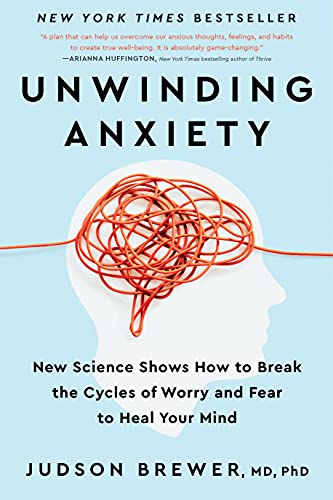

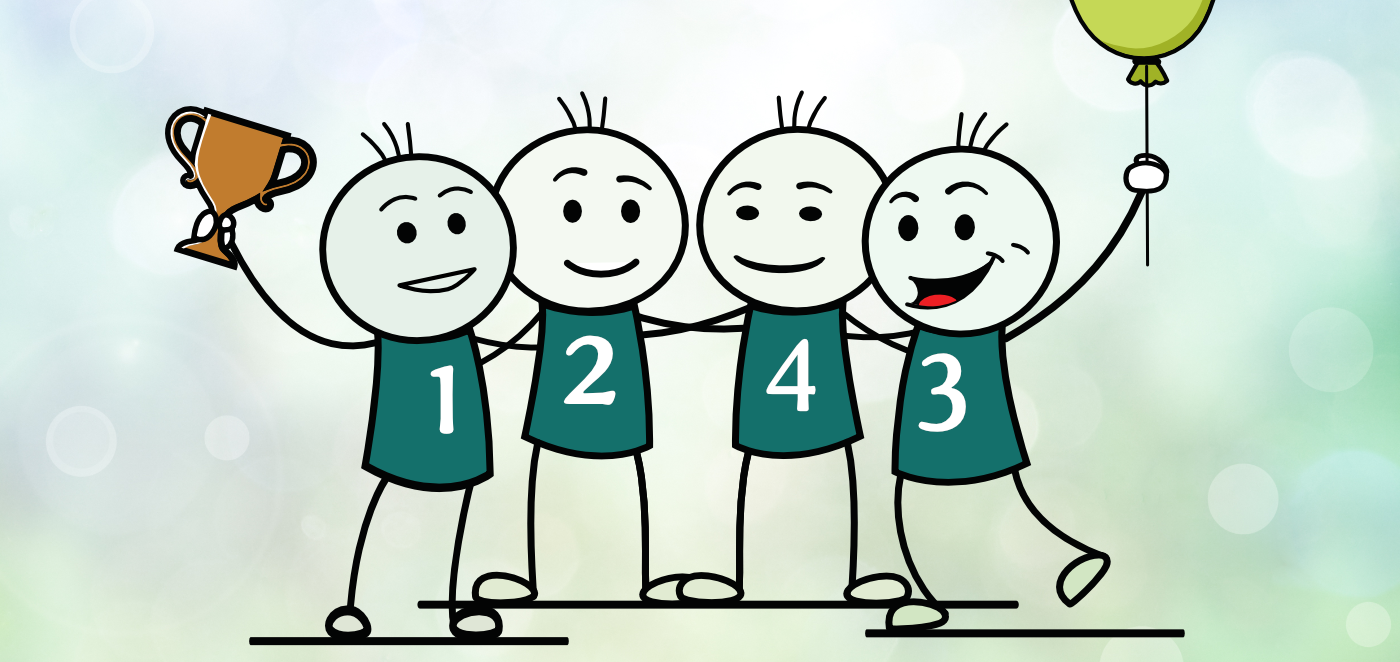
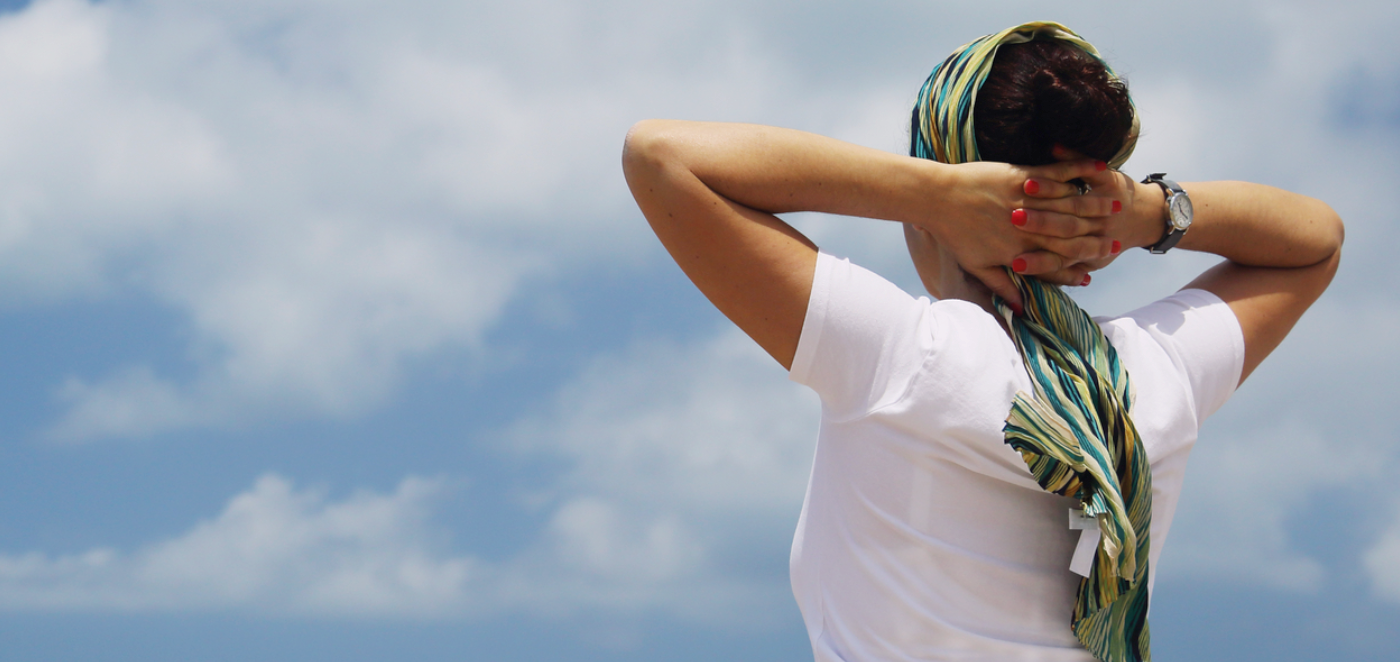

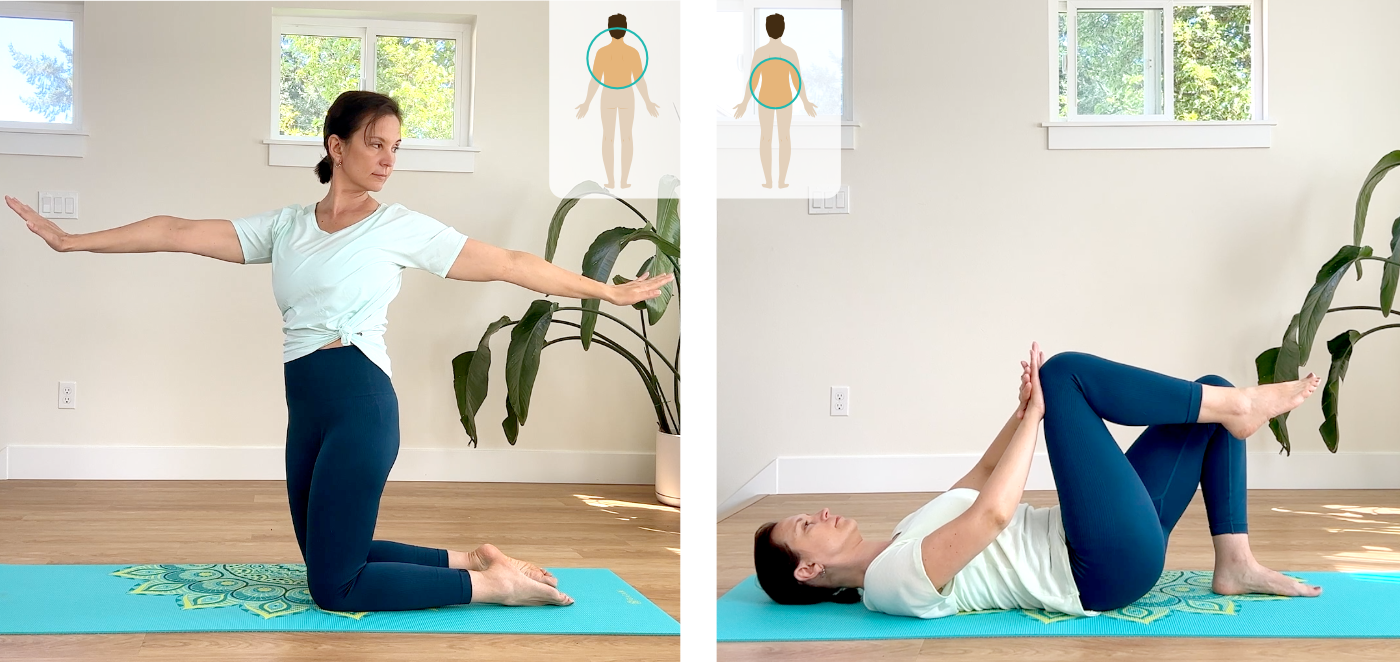
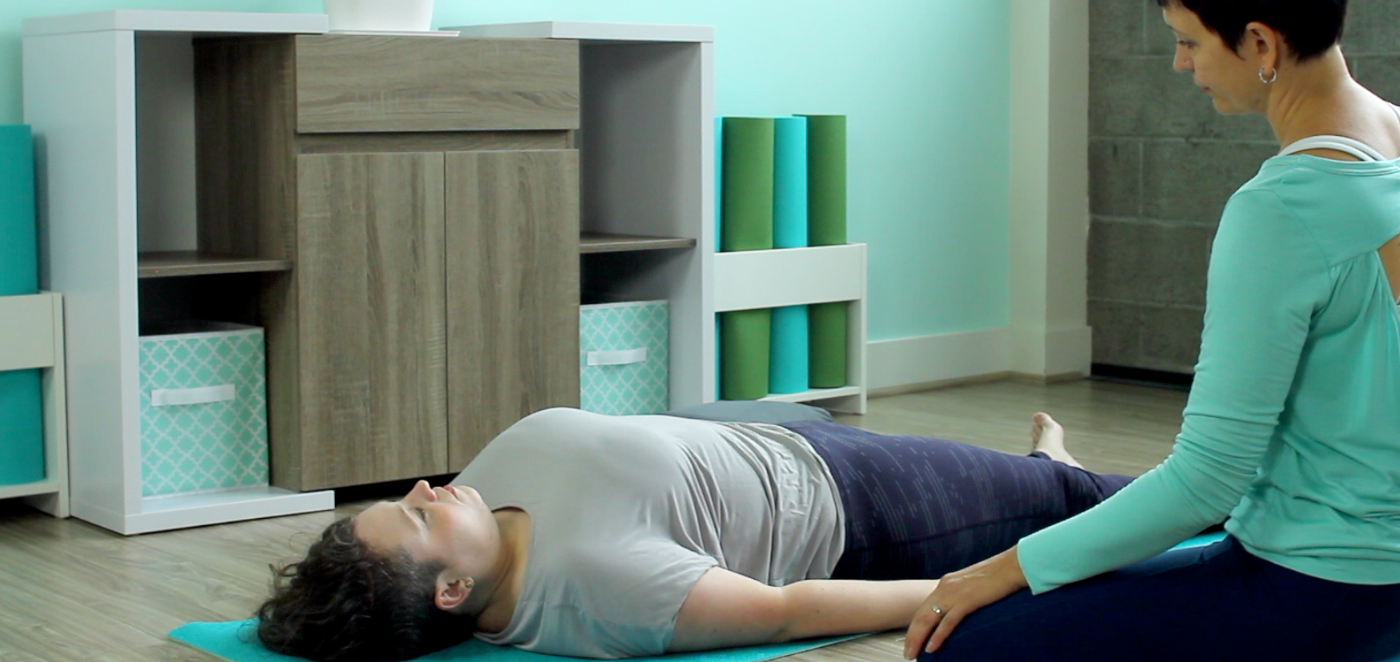

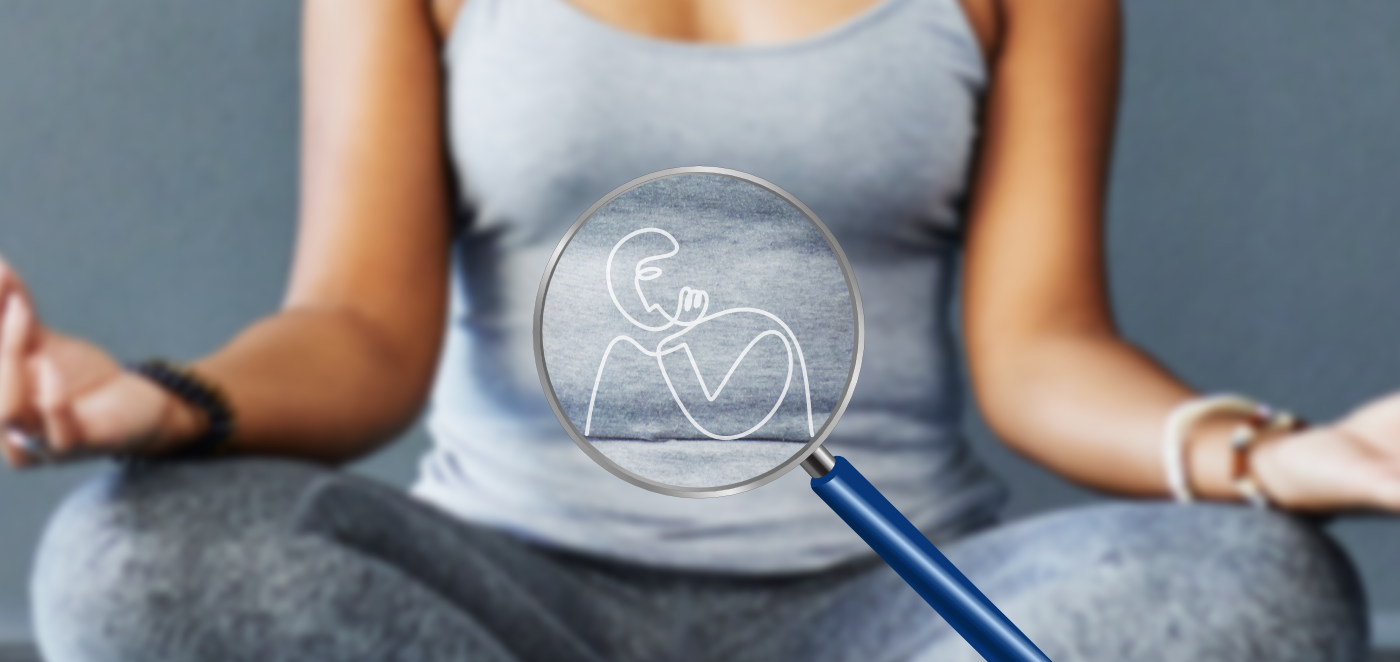
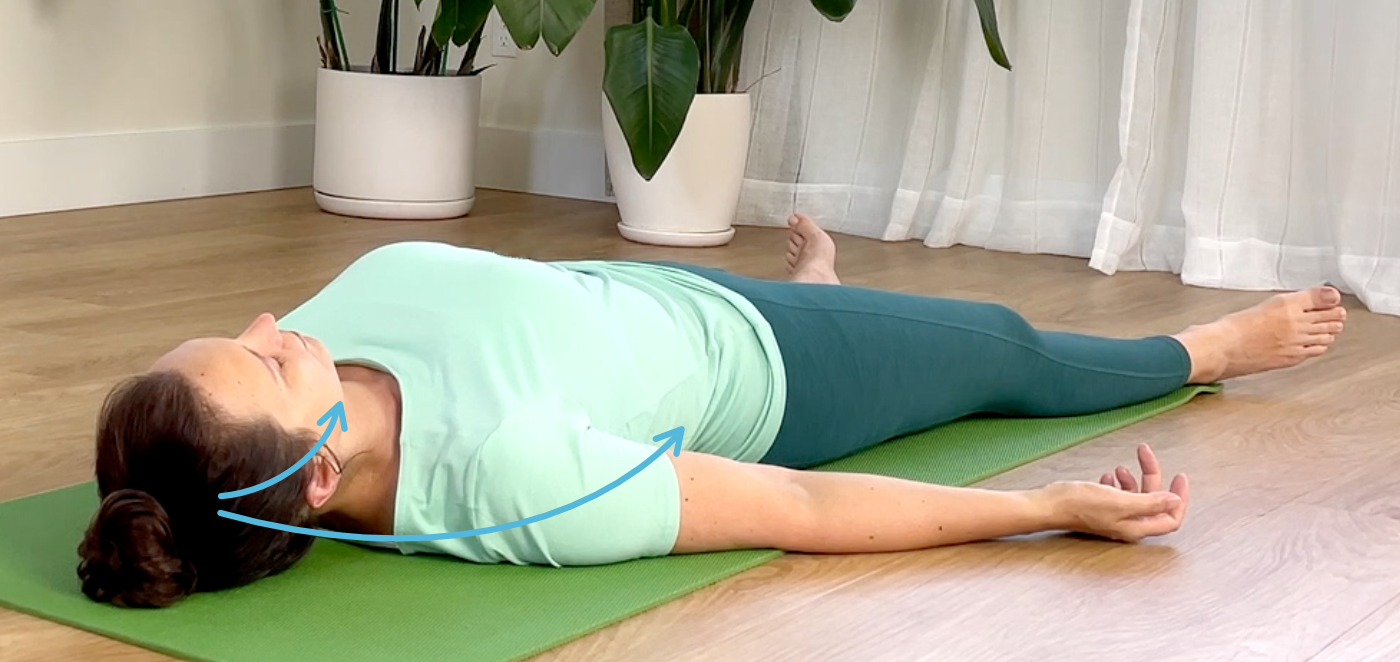
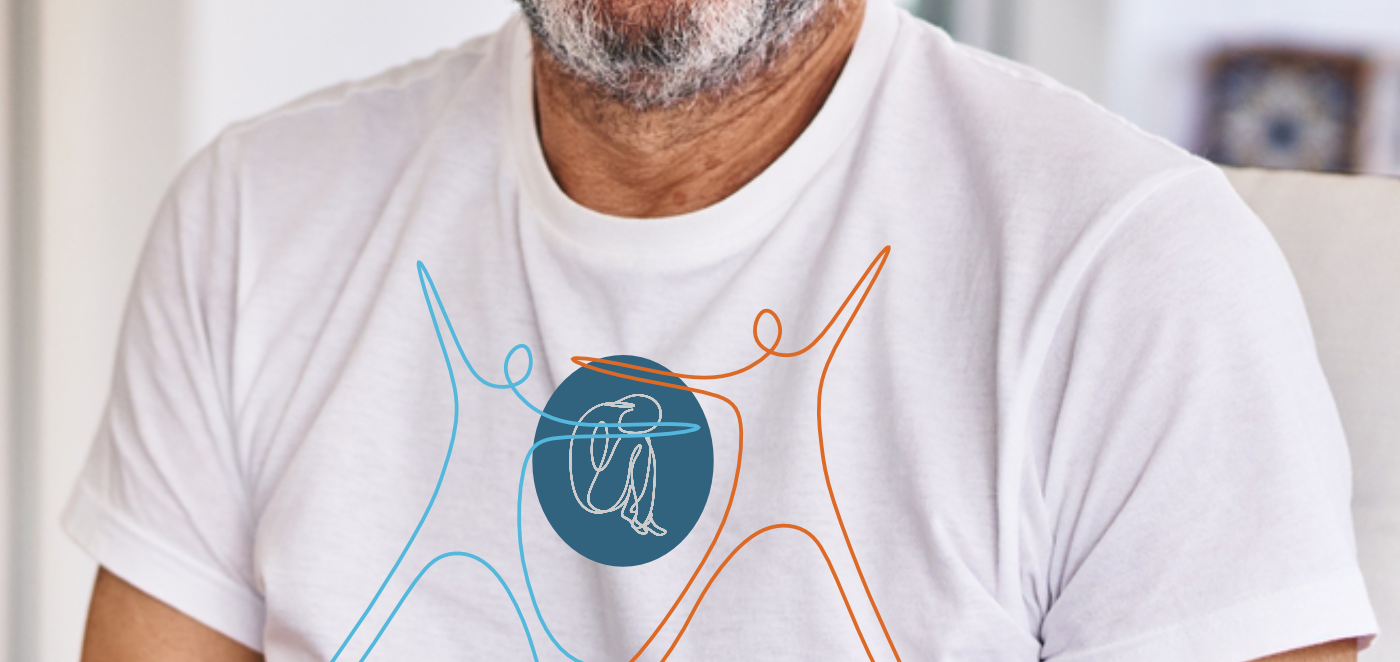
I Absolutely loved this and forwarded it to people including my child who deals with severe anxiety. I have been addicted to many things in my life- alcohol, smoking, sugar, attention, you name it. Working on it all – it is never too late to start!
So great to hear that you enjoyed the article! I completely agree – we can start at any moment, no matter how far those habits go. I am also working on teaching those strategies to my son; I believe this is one the greatest gifts we can give our children. I hope it helps yours!
You are wonderful Olga?? Thank you for this info. I have forwarded this post on to many, it is enlightening, full of hope and very much appreciated?
Thank you Natasha! That’s so lovely to hear!